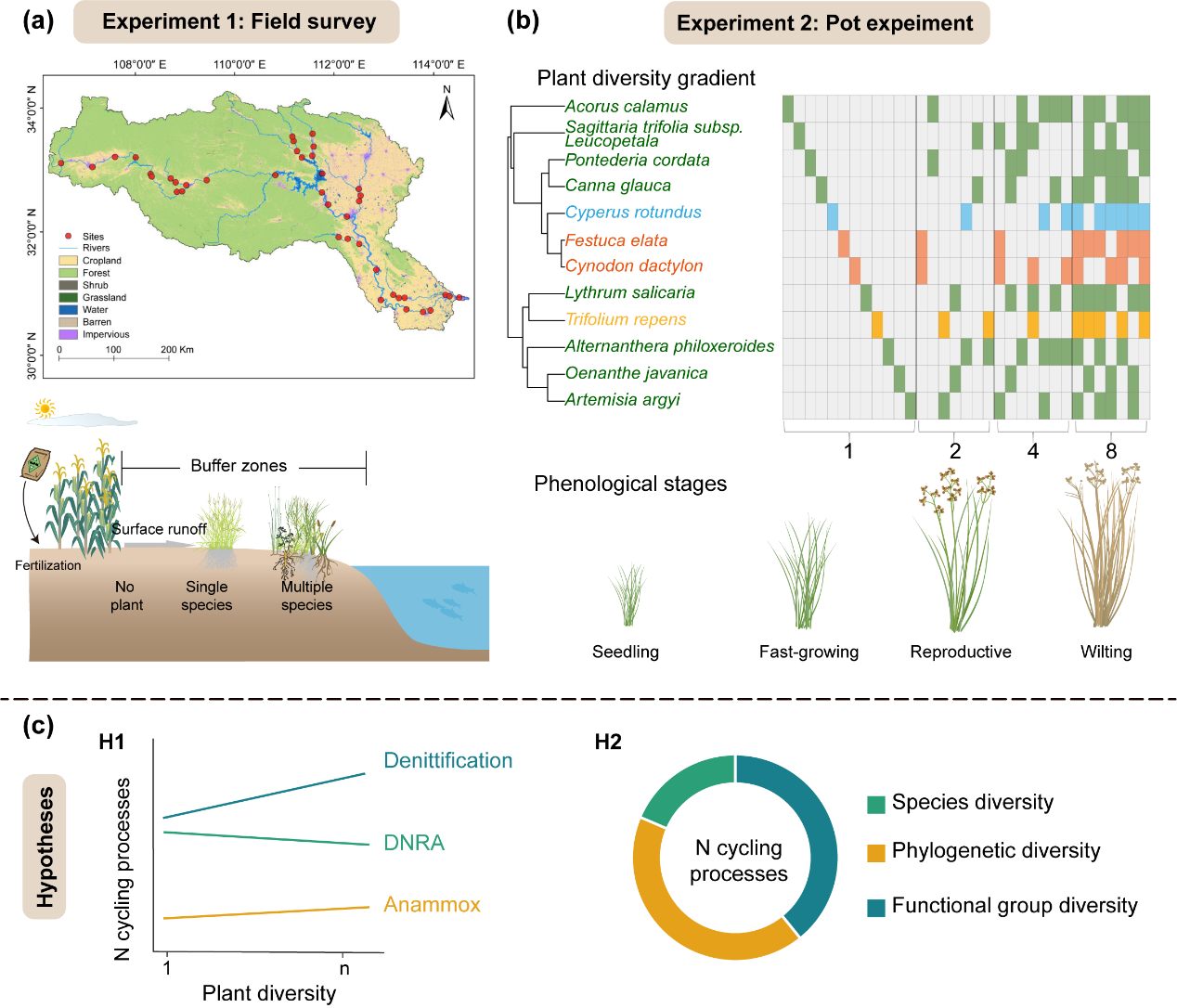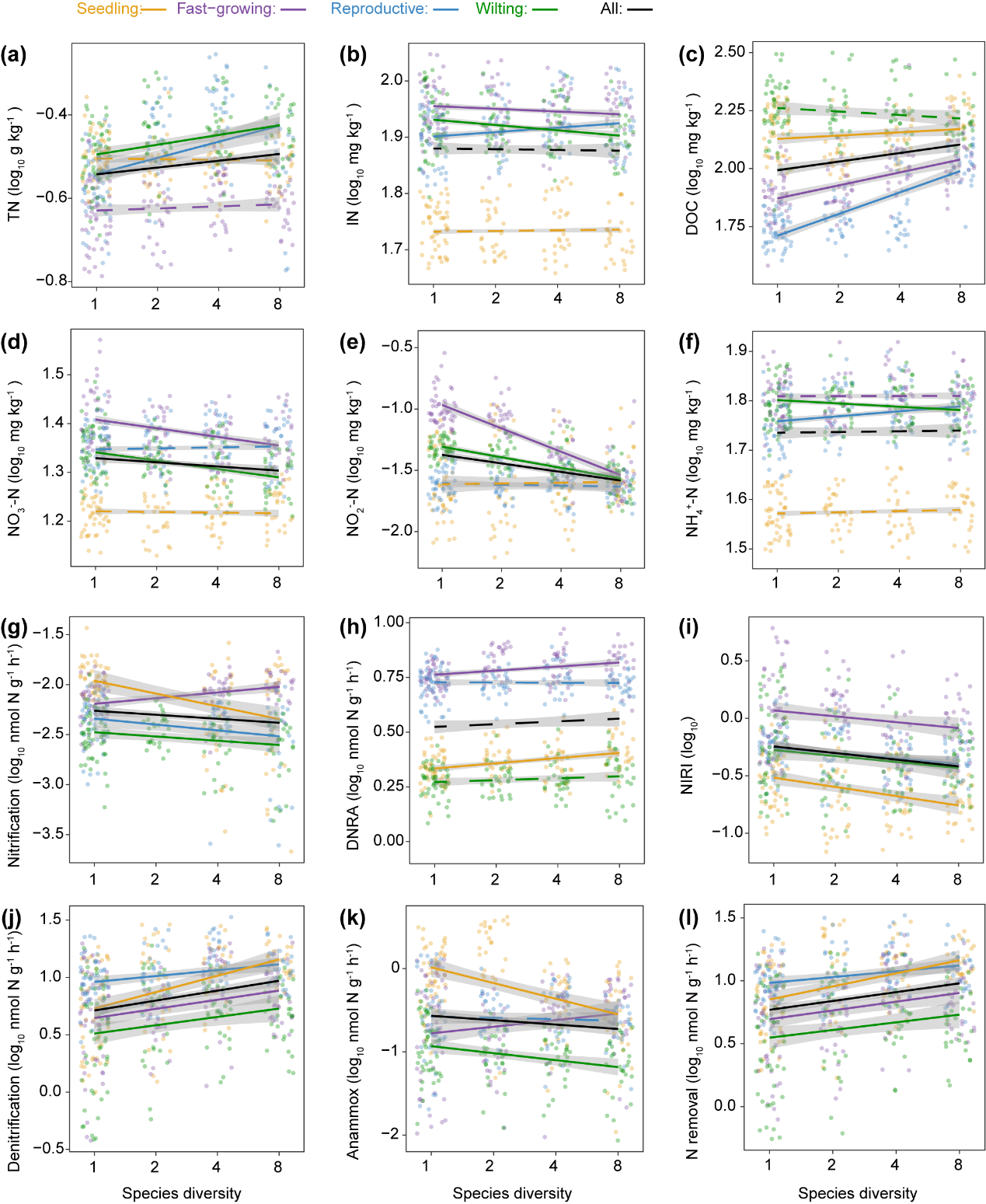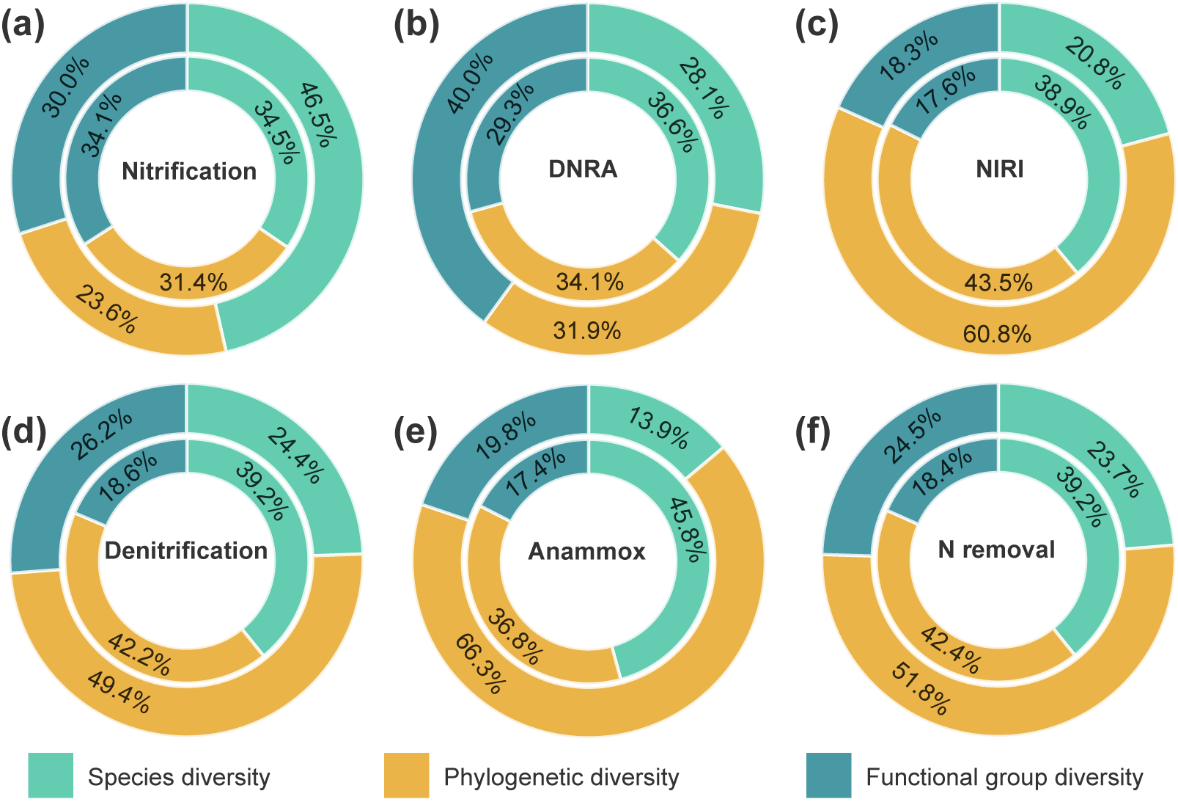Plant Diversity Supercharges Wetlands' Ability to Curb Nitrogen Pollution
2025-09-19
Wetland ecosystems play a critical role in the global nitrogen (N) cycle, particularly in mitigating N pollution. Although plant diversity is widely recognized as a key factor influencing ecosystem functioning, its specific mechanisms underlying soil N retention and removal processes in wetlands remain poorly understood.
A research team from the Wuhan Botanical Garden of the Chinese Academy of Sciences explored how different aspects of plant diversity, including species diversity, phylogenetic diversity, and functional group diversity, as well as phenological stages, influenced crucial N cycling processes in wetland soils.
The results demonstrated that plant diversity significantly increased soil total N and dissolved organic carbon (DOC), while reducing nitrate. More importantly, plant diversity simultaneously enhanced both N retention processes (dissimilatory nitrate reduction to ammonium, DNRA) and N removal processes (such as denitrification), with a more pronounced effect on N removal. As plant diversity increased, the relative contribution of denitrification to nitrate reduction pathways rose significantly, whereas the contributions of DNRA and anaerobic ammonium oxidation (anammox) declined.
Notably, phylogenetic diversity emerged as the strongest predictor of N removal processes (denitrification and anammox), outperforming both species diversity and functional group diversity. Furthermore, plant phenological stages directly or indirectly influenced N cycling rates by modulating soil DOC and the abundance of functional genes.
This study elucidates the mechanisms driving wetland soil N cycling within a multidimensional framework of plant diversity, highlighting the importance of phylogenetic diversity in predicting N removal capacity.
The findings provide a theoretical basis for the restoration of wetland vegetation and biodiversity conservation, offering key insights for improving N pollution control and enhancing ecological functions in wetland ecosystems.
It was published in New Phytologist entitled "Plant diversity promotes soil nitrogen retention and removal processes in wetlands". Professor LIU Wenzhi is the corresponding author, with ZHANG Caifang and CAI Miaomiao as co-first authors.

Graphical illustration of the framework and hypotheses of this study. A field survey was conducted across 41 riparian sites along the Hanjiang River (a), and a pot experiment was performed using 132 pots across four plant phenological stages (b) (Image by WBG)

Relationships between plant species diversity and soil N content, DOC content, and N cycling rates across different phenological stages in the pot experiment (Image by WBG)

Phylogenetic diversity showed stronger predictive power for N removal processes (Image by WBG)